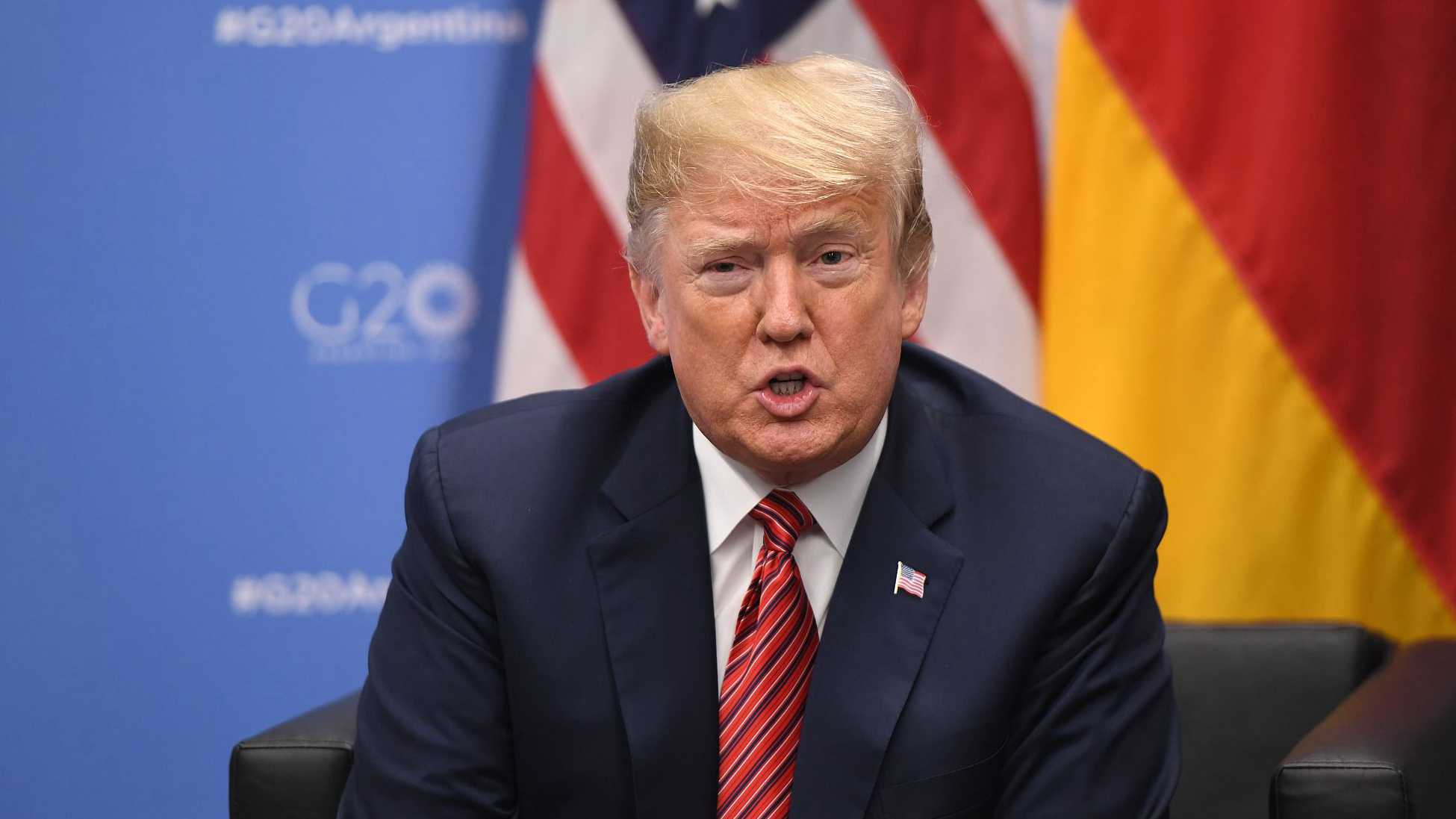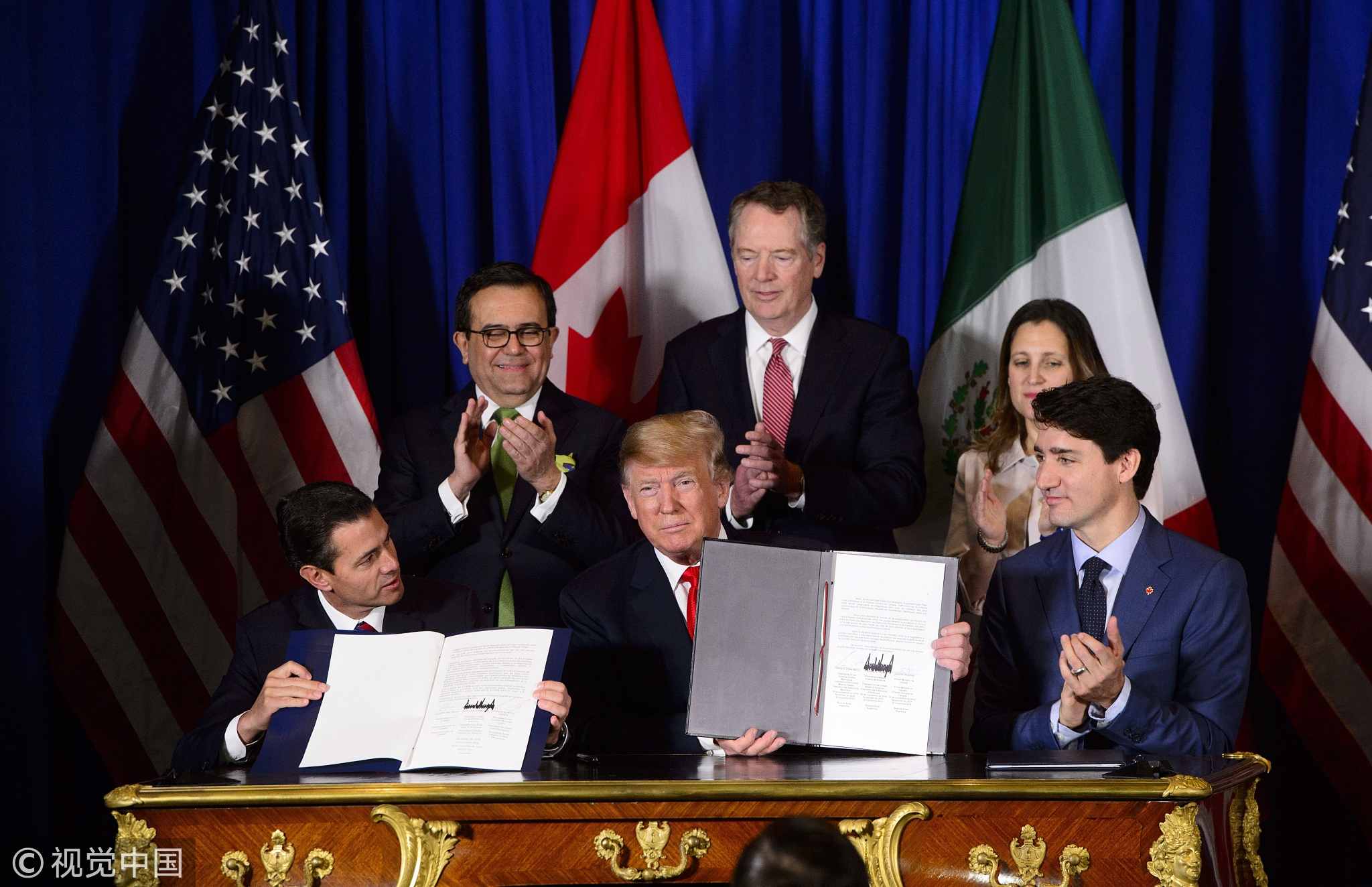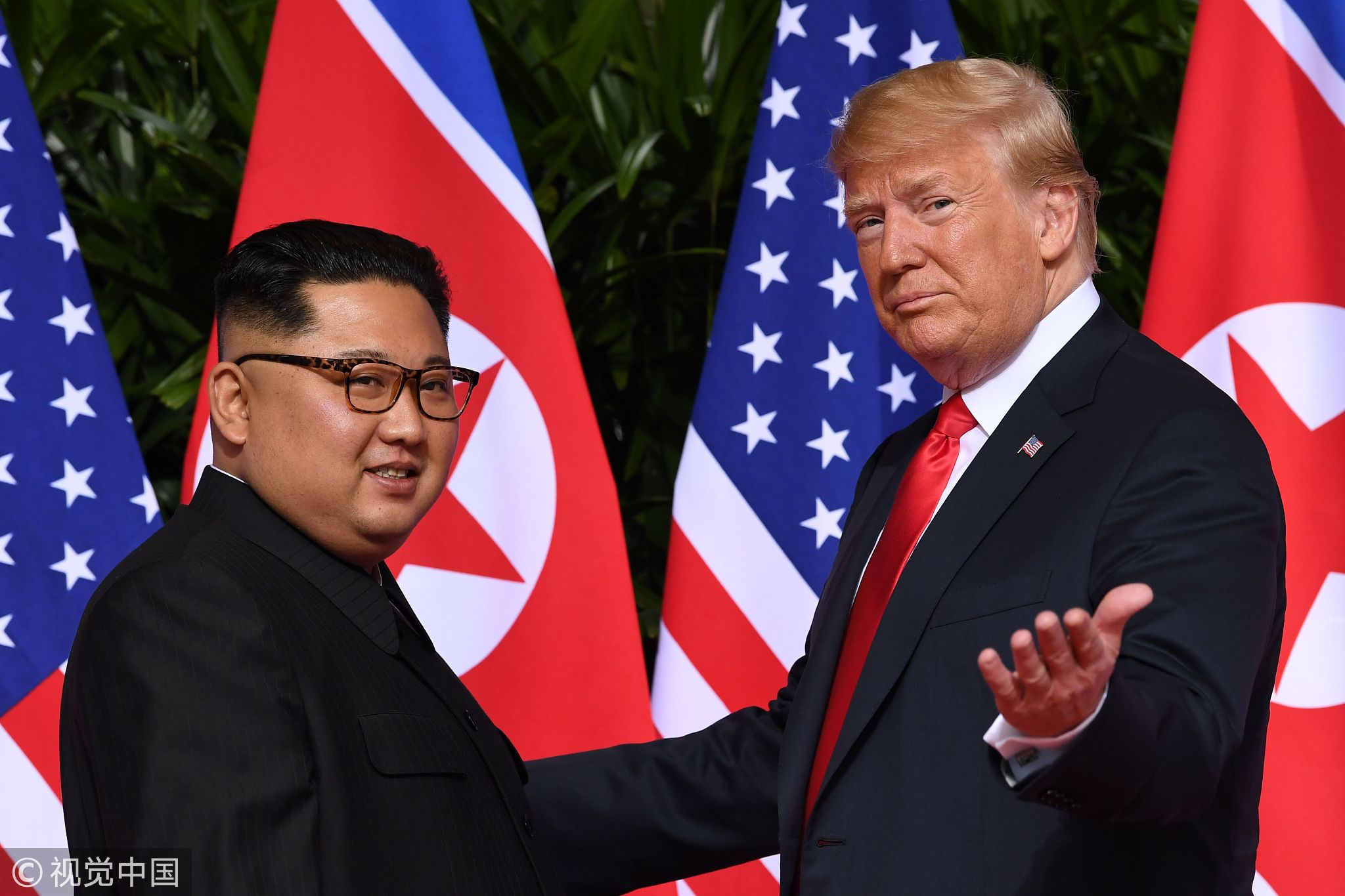
Opinions
23:16, 30-Dec-2018
Opinion: Can China and the U.S. pull off a deal?
Updated
22:47, 02-Jan-2019
Tom Fowdy

Editor's note: Tom Fowdy is a UK-based political analyst. The article reflects the author's views, and not necessarily those of CGTN.
The past 24 hours brought good news for U.S.-China relations. President Donald Trump tweeted that he had a long call with Chinese President Xi Jinping and that a "deal was moving along very well" with "big progress being made" concerning an end to the growing trade dispute between the two countries.
As the 90-day window for negotiations continues to tick down, some will be anticipating that a productive resolution can be reached soon. But given such came via a tweet, how much substance does it hold? What are the real chances such a deal can be secured?
Certainly, Trump's intent to come to an agreement with China should be taken seriously. It is something he wants, it is something China also wants. The chances of things going wrong are marginal.

U.S. President Donald Trump (1st row, C) participates in the signing ceremony for the new North American Free Trade Agreement in Buenos Aires, Argentina, November 30, 2018. /VCG Photo
U.S. President Donald Trump (1st row, C) participates in the signing ceremony for the new North American Free Trade Agreement in Buenos Aires, Argentina, November 30, 2018. /VCG Photo
However, differing geopolitical perspectives and expectations may continue to prolong irreconcilable differences between the two countries, which may act to freeze the status quo in the long term.
Although he has built his foreign policy around a tidal wave of anti-China sentiment flooding Washington, Trump very much has an interest in securing a deal to end or freeze the trade war, even if some around him feel otherwise.
Why? Because the Trump administration, despite its Neoconservative influences biting at the heels, is ultimately transactional in nature. In contrast to more traditional patterns of diplomacy and foreign policy, the president on a personal level conceptualizes the world in simplistic matters of simple self-interest and a question of gains versus losses. In doing so, he negates conventional behavior and norms in ways which some dislike.
For example, he was willing to meet DPRK leader Kim Jong Un, something no predecessor would do, disregard international treaties and even question the value of some U.S alliances in terms of financial cost. He ultimately thinks and acts in business terms.

U.S. President Donald Trump (R) gestures as he meets with DPRK's leader Kim Jong Un (L) at the start of their historic U.S.-DPRK summit, at the Capella Hotel on Sentosa island in Singapore, June 12, 2018. /VCG Photo
U.S. President Donald Trump (R) gestures as he meets with DPRK's leader Kim Jong Un (L) at the start of their historic U.S.-DPRK summit, at the Capella Hotel on Sentosa island in Singapore, June 12, 2018. /VCG Photo
As a result, President Trump has no reservations about doing a deal with China if he believes he can secure vital gains for the U.S economy which can allow him to paint his administration's policy as a success.
That is very much what he is looking for. He likes to appear erratic and irrational, but he is no fool. He is under no illusion that the escalation of the trade conflict will be damaging to the economic interests of the United States and undermine public sentiment for his policy. Of course, you will not hear that from him or his advisers directly, simply because the aim is to appear tough, all with the aim of driving a hard bargain.
China at the same time, will be more than willing to make a deal. Right now, Beijing's fundamental foreign policy goal is to secure stability in the China-U.S. relationship and to prevent an escalation of a crisis in relations.
Commentators these days talk about an "assertive China" or an "aspiring hegemon." This is misleading, as the foreign policy consensus remains firm in Beijing that China's future economic growth relies on a positive, cooperative and non-antagonistic relationship with Washington. Given this, China will be looking to sincerely make some compromises in the view of ending the trade confrontation. With Trump being a shrewd business operator, he certainly won't be letting that opportunity slip.
But there are some challenges ahead too. The list of demands which America is making of China are lengthy and extensive, some of which if applied fully would serve to radically re-write the country's entire economic system.
For example, ending industrial subsidies. Whilst such may serve the interests of the market, in practice such an act would be an abolition of China's socialist market economy system, a decimation of industry throughout entire provinces of the country, and an inducement of mass unemployment, very much like what happened in Britain in the 1980s as it ended state support for industries.
Thus, whilst Beijing might want to compromise, compromise is not capitulation. China is not desperate enough to be coerced by the U.S. into making policies which will serve to increase instability and unrest in the country.
Given this, a deal between the United States and China cannot be like simply ordering groceries on the Internet on a whim. It is a complicated process with many considerations and implications. Trump's discourse is unhelpful in understanding this reality.
Thus, given Washington's demands are intrinsically tied with a broader anti-China sentiment which far exceeds the man of Trump himself, making a deal may be easier said than done given a clash of expectations and of course, perspective.
Trump may be pushed into expressing dissatisfaction by those around him, even if progress is made. The result thus may be not a comprehensive deal, nor an escalation, but both sides making token concessions and ultimately being stuck in a frozen, albeit more stabilized version of the status quo, with key obstacles preventing either side from moving forwards and ending the trade war outright.
(If you want to contribute and have specific expertise, please contact us at opinions@cgtn.com.)

SITEMAP
Copyright © 2018 CGTN. Beijing ICP prepared NO.16065310-3
Copyright © 2018 CGTN. Beijing ICP prepared NO.16065310-3